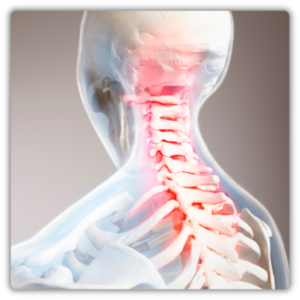What are the Symptoms of a Pinched Nerve?
 Pinched nerves can occur in various locations, including the neck or lower back, and are often caused by pressure on the nerve. Symptoms may include pain from a pinched nerve, tingling, or numbness in the affected area, indicating involvement of the nerve root or spinal nerve roots.
Pinched nerves can occur in various locations, including the neck or lower back, and are often caused by pressure on the nerve. Symptoms may include pain from a pinched nerve, tingling, or numbness in the affected area, indicating involvement of the nerve root or spinal nerve roots.
To relieve pain and help reduce discomfort, a treatment plan may include exercises that can help stretch and strengthen neck muscles or lower back muscles. Applying neck rests can also relieve pressure on the nerve and get relief for compressed nerves that can lead to nerve damage.
In cases of back pain, it’s essential to diagnose a pinched nerve accurately to determine the location of the pinched nerve. Pinched nerve remedies may include medications, physical therapy, or other treatments for pinched nerves designed to relieve pain and restore function.
KEY POINTS
A pinched nerve, often caused by pressure on nerve roots, can lead to pain, tingling, or numbness, affecting mobility and overall function.
Home remedies, such as gentle stretching, proper rest, and ice or heat therapy, can alleviate pain and reduce nerve compression.
Physical therapy complements home treatments by strengthening muscles and improving posture, helping to prevent future nerve issues.
Early intervention and consistent care, including professional guidance if necessary, can promote recovery and prevent long-term complications from a pinched nerve.

Pop in your email below, and we’ll zip it straight to your inbox so you never lose it!
Distinguishing Between Neck Pain and Pinched Nerve Symptoms
Distinguishing between neck pain and pinched nerve symptoms is crucial. Cervical radiculopathy may cause pain in the neck or back, often resulting from pressure on the affected nerve root. This condition, known as a pinched nerve, can lead to a pinched nerve in the back or neck.
Symptoms of cervical radiculopathy may include weakness or numbness that radiates from the head and neck down the arm, particularly affecting the median nerve. Exercises can help take pressure off the nerve and treat a pinched nerve. However, symptoms can persist for 10-15 minutes at a time.
If you experience neck pain alongside neurological symptoms, consider that pinched nerve treatments may be necessary. Treatment at home can involve rest and gentle stretching, which may help alleviate the pressure on the affected nerve. Understanding these differences is key to effective management of neck and back pain.
Looking to take control of your weight & nutrition?

How Can Home Remedies Help Relieve a Pinched Nerve?
A pinched nerve can cause discomfort and pain, often leading to limited mobility. While medical treatment may be necessary in severe cases, there are several effective home remedies that can help relieve the pain and discomfort associated with a pinched nerve.
Effective Home Remedies for Pinched Nerve Pain Relief
Home remedies can play a key role in alleviating pain. Gentle stretches and exercises can help relieve tension around the affected area. Additionally, staying in a comfortable position that doesn’t worsen the nerve compression is crucial. Over-the-counter pain medications, such as ibuprofen or acetaminophen, may provide short-term relief by reducing inflammation and pain.
How Physical Therapy Can Complement Home Treatments
Physical therapy can complement home treatments by targeting the root cause of the pinched nerve. A physical therapist may guide you through specific exercises that strengthen the muscles around the affected area and improve posture, reducing the risk of nerve compression. Combining physical therapy with home remedies can speed up recovery and prevent future occurrences.
Using Ice and Heat Therapy for Relief
Ice and heat therapy are common and highly effective methods for managing pinched nerve pain. Applying an ice pack to the affected area can reduce inflammation and numb the area, offering immediate relief. On the other hand, heat therapy can help relax tense muscles, increase blood flow, and reduce pain. Alternating between ice and heat can provide comprehensive relief and encourage healing.
By using these home remedies in conjunction with professional advice and care, many individuals find relief from the symptoms of a pinched nerve and can manage pain more effectively.
What Treatment Options Are Available for a Pinched Nerve?
 Various treatment options are available for a pinched nerve in the neck or pinched nerve in back. Conservative methods include physical therapy, medication, and rest, which can help relieve pain and other symptoms when a pinched nerve occurs. Identifying causes of pinched nerves is crucial to prevent further nerve damage.
Various treatment options are available for a pinched nerve in the neck or pinched nerve in back. Conservative methods include physical therapy, medication, and rest, which can help relieve pain and other symptoms when a pinched nerve occurs. Identifying causes of pinched nerves is crucial to prevent further nerve damage.
For example, minor pinched nerves often respond well to at-home remedies such as ice packs and gentle stretches. However, if pressure on a nerve persists, medical intervention may be necessary. In cases where the nerve is compressed for 10-15 minutes or longer, treatments like corticosteroid injections or surgery may be required, especially for issues like a compressed sciatic nerve.
To prevent pinched nerves, maintaining good posture and strengthening the spine can be effective. Additionally, understanding common causes of pinched nerves, such as herniated discs or repetitive stress, helps in taking proactive measures. Ultimately, addressing how nerves in your neck or back are affected allows the nerve to heal properly.
How Long Does It Take to Recover from a Pinched Nerve?
Recovering from a pinched nerve typically varies depending on the severity. A pinched nerve in your neck can occur when a nerve becomes compressed due to surrounding tissues. If the compression lasts for 10-15 minutes, it may resolve on its own, but ongoing pressure can lead to cervical radiculopathy symptoms.
When a nerve root becomes trapped, it can compress a nerve, causing pain and disrupting nerve impulses. One of the best things to do is to soothe pinched nerves through rest and physical therapy. This helps reduce nerve irritation and promotes recovery around a pinched nerve.
In many cases, nerve conduction studies may be required to assess the extent of the damage. Recovery time can vary, but with proper care, symptoms of a pinched nerve can improve significantly, allowing you to regain normal function in your neck.
If you want to explore more effective remedies for a pinched nerve, visit this detailed resource.











